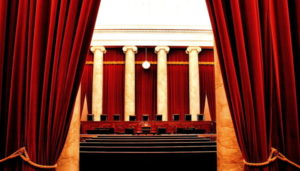By John Kanelis / johnkanelis_92@hotmail.com
The old saying about how “elections have consequences” is playing itself out on the U.S. Supreme Court.
President Biden’s immediate predecessor was able to nominate three justices to the nation’s highest court during his single term. This week, we saw the effect of those nominations present itself in real time with a ruling that makes it more difficult to stem the Republican tide that seeks to make voting more difficult for Americans.
The court ruled 6 to 3 — with conservative justices winning the fight — on a ruling out of Arizona that keeps in place strict voter requirements that critics suggest aim to make it harder for traditionally Democratic citizens to vote.
So the battle will be joined.
The ruling makes it harder for ethnic and racial minorities to challenge the Arizona law, which places many restrictions deemed critical to the political balance of power.
These appointments to the nation’s highest court have reignited calls to expand the court from its current nine justices to, oh, 13 or 15. That’s a bad idea and I do not support such a drastic move. President Biden isn’t warm to the notion, either. He pledged to appoint a blue-ribbon commission of conservative and liberal legal scholars to find a way to reform the federal judiciary.
However, electoral consequences have this way of presenting themselves when courts make these difficult decisions.
Justice Stephen Breyer, appointed to the court in 1994 after being nominated by President Clinton, might retire soon. Breyer is among the liberals on the court. A nomination by President Biden isn’t going to change the court’s ideological tilt should he get the chance.
These key court rulings do make it imperative that we understand the consequences of electing presidents. They are huge, especially when the court system swings too far in the wrong direction.
In my humble view, it has done so.
